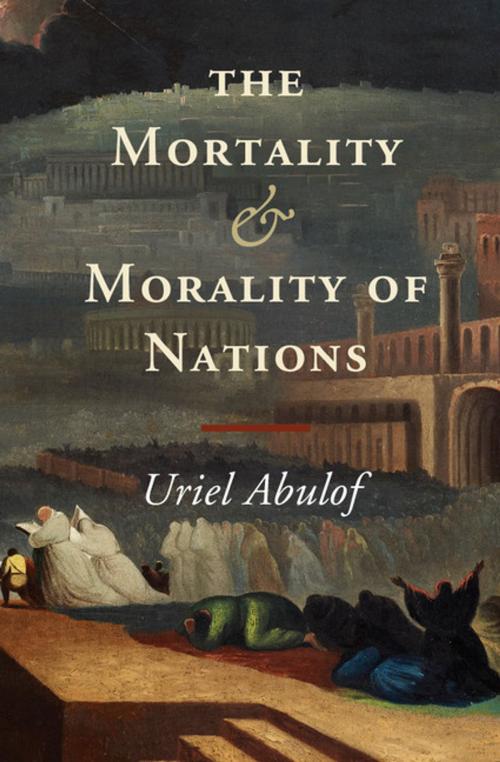The Mortality and Morality of Nations
Nonfiction, Social & Cultural Studies, Political Science, Politics, History & Theory, Religion & Spirituality, Philosophy| Author: | Uriel Abulof | ISBN: | 9781316365755 |
| Publisher: | Cambridge University Press | Publication: | July 24, 2015 |
| Imprint: | Cambridge University Press | Language: | English |
| Author: | Uriel Abulof |
| ISBN: | 9781316365755 |
| Publisher: | Cambridge University Press |
| Publication: | July 24, 2015 |
| Imprint: | Cambridge University Press |
| Language: | English |
Standing at the edge of life's abyss, we seek meaningful order. We commonly find this 'symbolic immortality' in religion, civilization, state and nation. What happens, however, when the nation itself appears mortal? The Mortality and Morality of Nations seeks to answer this question, theoretically and empirically. It argues that mortality makes morality, and right makes might; the nation's sense of a looming abyss informs its quest for a higher moral ground, which, if reached, can bolster its vitality. The book investigates nationalism's promise of moral immortality and its limitations via three case studies: French Canadians, Israeli Jews, and Afrikaners. All three have been insecure about the validity of their identity or the viability of their polity, or both. They have sought partial redress in existential self-legitimation: by the nation, of the nation and for the nation's very existence.
Standing at the edge of life's abyss, we seek meaningful order. We commonly find this 'symbolic immortality' in religion, civilization, state and nation. What happens, however, when the nation itself appears mortal? The Mortality and Morality of Nations seeks to answer this question, theoretically and empirically. It argues that mortality makes morality, and right makes might; the nation's sense of a looming abyss informs its quest for a higher moral ground, which, if reached, can bolster its vitality. The book investigates nationalism's promise of moral immortality and its limitations via three case studies: French Canadians, Israeli Jews, and Afrikaners. All three have been insecure about the validity of their identity or the viability of their polity, or both. They have sought partial redress in existential self-legitimation: by the nation, of the nation and for the nation's very existence.















